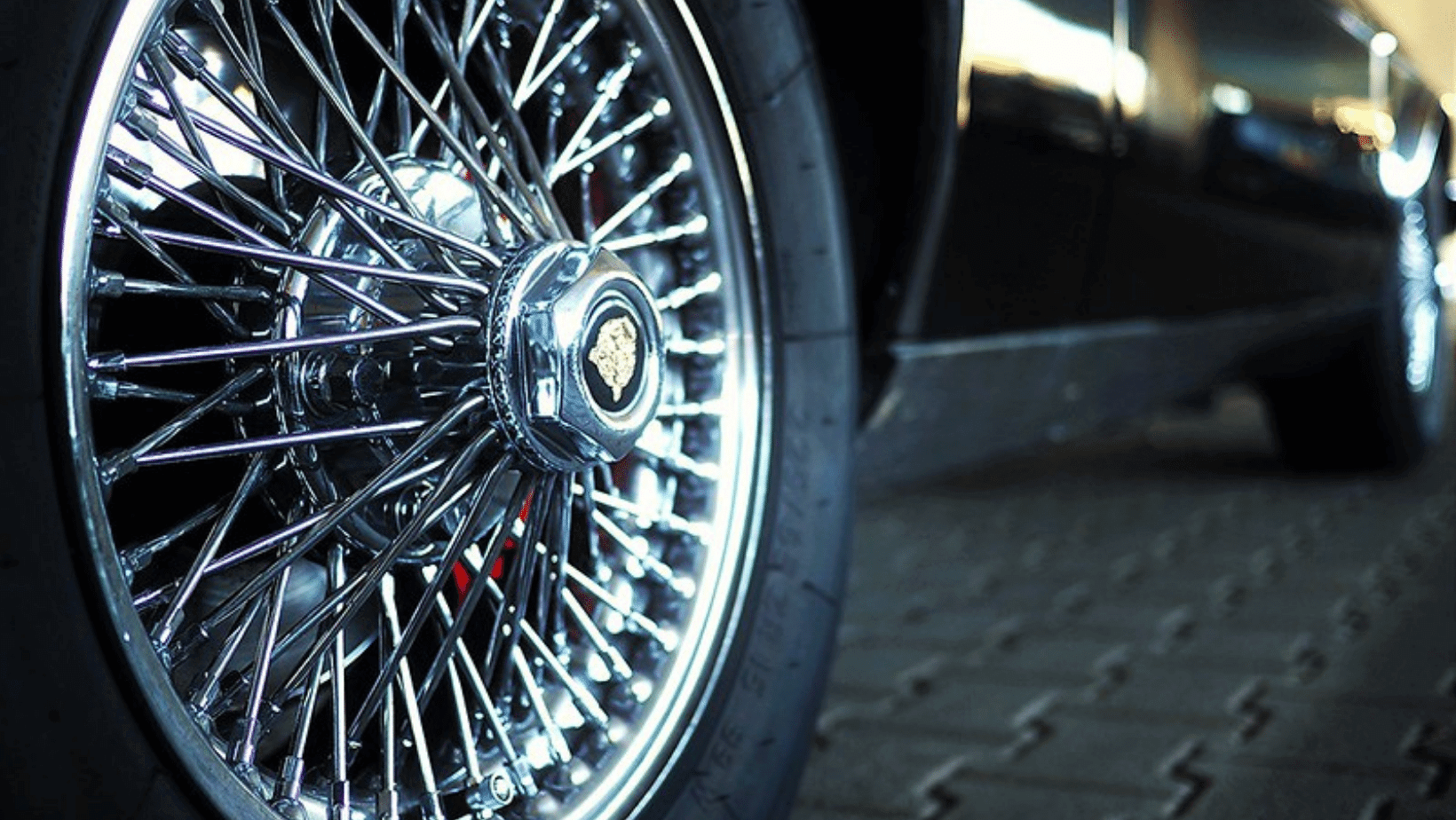Many truck owners often consider doing something before going off-roading – improving ground clearance.
It is always important to do this to reduce or limit the impact of the truck against obstacles such as rocks and bumps.
One of the commonly known ways to improve ground clearance is by getting larger wheels and tires.
However, people ask a question like: “do rims affect suspensions?“ Well, you are about to find out in this article.
Why Big Rims Can Be A Popular Buy – Wheel Size Considered?
Car rims were not really considered until the mid-90s. However, rim inflation happened, and many manufacturers started making larger rims that would be of benefit to drivers.
For some car owners, getting bigger wheels is desirable and fancy. They believe these wheels will improve the aesthetics of their vehicle.
On another thought, bigger rims give vehicles better stance or stability. It almost feels like the vehicle is ready to bounce or overcome any obstacle.
The benefits of large wheels
Maybe you are thinking of getting bigger wheels, you should learn more about the benefits. Here they are:
Larger wheels are great at lifting trucks high up and improving ground clearance for easy movement off-road.
And as the wheel size increases, the tire size does.
Putting larger wheels means fitting larger tires so that the truck can sort dirt and gravel easily.
Besides, bigger tires only make it possible for the rubber to come in contact with the road/ground perfectly, without experiencing uneven wear.
Furthermore, larger diameter wheels and tires improve towing capabilities and make a vehicle look wider, lower, and longer.
More importantly, getting a larger wheel helps the braking performance.
It is possible because the increase of the rotor size of your brakes only means a decrease in braking distance.
And since bigger wheels require larger rotors, there is bound to be reduced braking distance.
The downsides of larger wheels
As larger wheels have their benefits, they also have their demerits.
First, bigger wheels cost more than standard wheels. The reason is that the material used in production is expensive. The cost of labor is also considered when installing or replacing.
Secondly, bigger wheels have an additional weight that increases the work of the engine. And as this happens, fuel economy reduces.
However, if you have a strong engine, fuel efficiency may be unaffected.
Thirdly, your car may start developing steering performance issues. You may start to find it difficult to turn or accelerate or handle.
Also, if you have large tires due to big wheels, you may experience fast tire wear. This is because of the small sidewalls, wheel scraping, and hard steering.
Lastly, you may start to notice a safety warning system malfunction and incorrect speedometer readings since the integrated technology is compromised.
Do bigger rims affect ride quality?
Yes, they do.
The thumb rule is that ride quality depends on the wheel size. Other things affected by wheel size are noise levels and handling.
Anyone signing up to use bigger wheels or thinner tires automatically knows that ride quality will be affected tremendously. It often results in rougher rides.
On the other hand, smaller wheels and thicker tires will guarantee smoother rides.
In simple terms:
- Smaller wheel: smooth ride quality, low stability, good handling, and low or no road noise.
- Medium wheel: average ride quality, stability, good handling, and low road noise.
- Larger wheel: rough ride quality, good stability, responsive handling, and high road noise.
Potential Damages That Come From Big rims – Wheel and Tire Combination
If you increase rim size, there are potential damages that could be done to your vehicle. The unsprung weight can affect your vehicle’s suspension system and other components. They include:
1. Transmission Issues
By increasing the sizes of your wheels and tires, one of the imminent dangers is with the transmission.
It is an important feature for mobility in vehicles. In some cases, your drivetrain, brake system, and other components within your car’s system could be affected.
Likewise, your speedometer and odometer may start reading incorrectly because you are moving against the standard rate.
2. Suspension Parts Issues
Potentially, your car’s suspension may develop issues with increased wheel and tire sizes.
Many car manufacturers design their suspension systems with an overall diameter but when you fit bigger wheels, you put extra weight on the system and make it only usable with thinner tires.
3. Premature Treadwear
If you use heavier wheels, there is an automatic effect on the tires – they start to rotate slower to make up for the changes in size.
However, this takes more power, reducing your vehicle’s gear ratio excessively. Ultimately, your tire becomes worn out due to the extra strain on the transmission.
4. Changes in Fuel Economy
With wheel sizes increased, there is bound to be a problem with your vehicle’s acceleration – it reduces.
The reason why this happens is that there is additional stress on your brake system, which in turn affects the gas mileage.
Ultimately, your car’s fuel economy and efficiency change because you increased the size of your wheels and tires.
In this situation, going on long road trips might be overbearing because you are spending more on fuel.
Do big rims ruin transmission?
Yes, they do.
When you get larger rims, you are likely to get larger tires.
However, the changes to the tires and wheels automatically affect the transmission. The powertrain drive ratio changes because there is extra strain and heat on the transmission.
As a matter of fact, your car’s transmission shift points may be put at a non-optimal speed, thus, affecting ride quality.
Will putting bigger wheels damage my car?
Yes, it does, ultimately.
Many drivers often try to make modifications to their vehicles like fixing bigger wheels and tires.
The mods may seem cool to a point but eventually, it does affect the performance of your vehicle.
With the width increased, there is possible damage to the suspensions, tires, and wheels. As a matter of fact, you may start to have incorrect speedometer readings.
If not corrected immediately, you may constantly have to visit a mechanic’s place for one repair or another.
In the worst-case scenario, you might get into an accident because the tires are involved.
What happens when you get bigger tires or rims?
When it comes to tire size, there is an aspect ratio for every car. And regarding wheels, there is an overall diameter.
However, if you go above the recommended wheel or tire size, your car may suffer the worst fate.
There are potential problems with the acceleration and fuel efficiency.
Over time, you may not exactly enjoy driving over long distances with sized tires or rims, as you would with lower-profile tires.
Final Thoughts
If you are thinking about increasing the width of your tires or wheels, you should consider the impact on the entire performance of your vehicle.
Now, that doesn’t mean you shouldn’t go for larger diameter wheels or tires if you want to; instead, you should prepare yourself to spend more on fuel and maintenance compared to low-profile tires.
Lastly, if you must buy new rims (or new wheels), you should visit a reputable shop. You should get something worth the money for your car.


